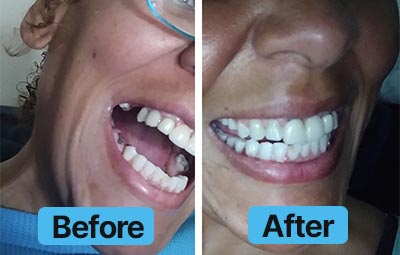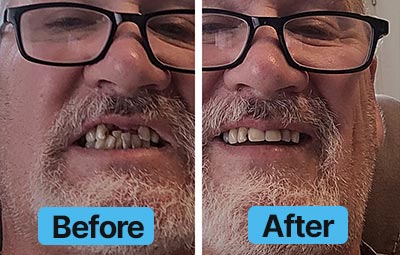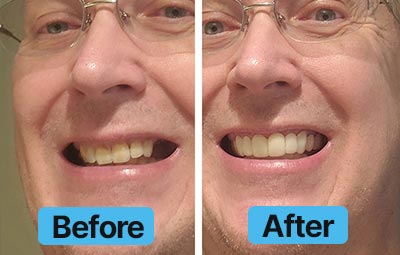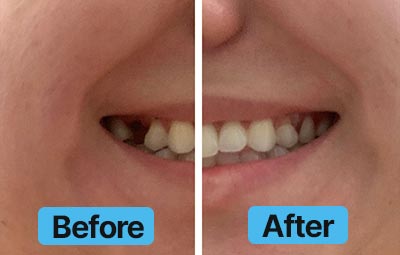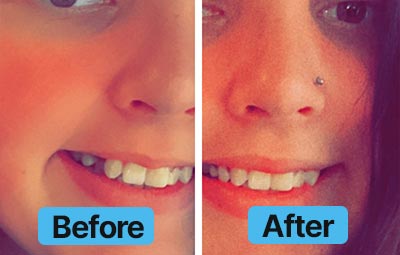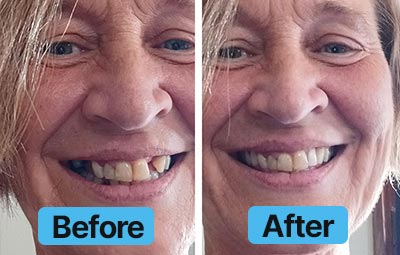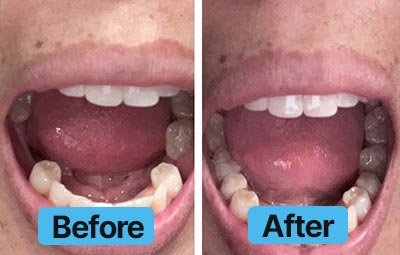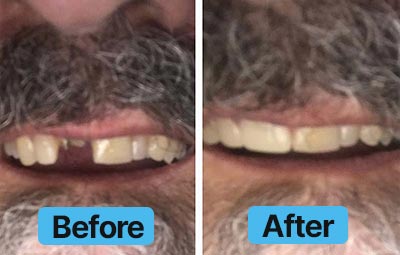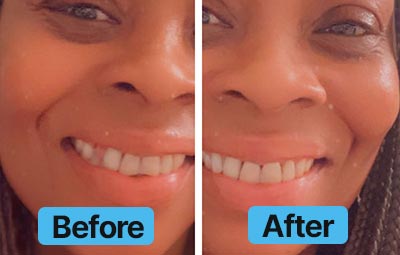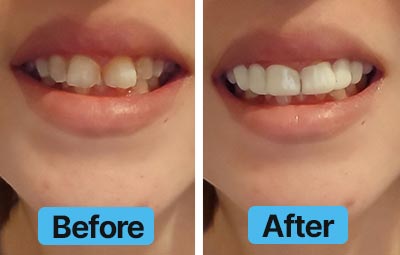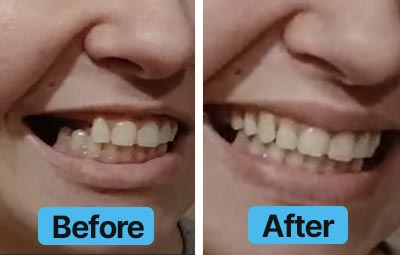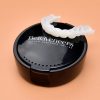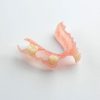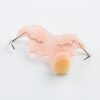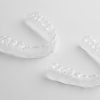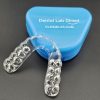Wearing a night guard (mouth guard for sleeping) is one of the best ways to protect your teeth if you grind or clench at night.
Bruxism (teeth grinding) during sleep is very common, estimated to affect over 30% of adults to some degree and it can lead to headaches, jaw pain, chipped teeth, and worn-down teeth.
Since the COVID-19 pandemic, dentists have reported a significant rise in stress-related teeth grinding; more than 70% of dentists saw increased clenching/grinding in their patients during 2020-2021.
With such a huge rise in cases, finding the right tips for sleeping with a mouth guard has become more important than ever for protecting your teeth and getting a comfortable night’s rest.
How Can a Mouthguard Help with Teeth Grinding?
A night mouth guard creates a protective barrier between your teeth, preventing damage and relieving pressure on the jaw. It can dramatically reduce tooth wear, fractures, and morning jaw soreness.
However, adjusting to sleeping with a mouth guard can take a little time. For the first few nights (or weeks) wearing a night guard, you might experience extra salivation, a slight gag reflex, or general discomfort as your mouth gets used to the device.
Since so many people are struggling to find tips for sleeping with a mouth guard, we put together a guide to help you adjust faster, sleep more comfortably, and protect your teeth without the frustration of nightly discomfort.
5 Tips For Sleeping With A Mouth Guard
Tip 1: Get a Custom-Fit Guard
Night guards come in several types, from store-bought boil-and-bite models to fully custom-made guards. Custom guards are molded to your exact teeth, staying snug and comfortable without feeling bulky. Poorly fitting, one-size guards can slip, feel awkward, and make sleeping harder, which is something you probably want to avoid.
A well-fitted custom nightguard quickly becomes unnoticeable and provides the best protection against grinding and clenching.
Tip 2: Choose the Right Mouth Guard
Not all nightguards are the same, and the right type depends on how you grind or clench.
- Soft nightguards are best for light grinders who want maximum comfort and an easy adjustment period.
- Hard nightguards provide you with the most durability and protection. Those whom clench intensely (heavy grinders) will find the most success with this guard.
- Hybrid nightguards combine a soft inner layer for comfort with a hard outer shell for long-lasting defense, making them perfect for moderate to heavy grinders seeking balance.
Tip 3: Give Yourself Time to Adjust Each Night
Don’t wait until the last second before lights-out to pop in your night guard. Put the mouth guard in 15-30 minutes before bedtime as you go through your evening routine. Wear it while you relax, like when you’re watching TV in bed or reading, so that your mouth has time to get used to it before you actually try to sleep.
It might sound silly, but this pre-sleep period helps signal to your brain that the guard is “normal,” reducing the awkward sensation.
Expect some extra saliva at first; your mouth’s natural reaction to a foreign object is to salivate (it thinks you’re chewing food). The excess saliva and drooling will improve after a week or two as your body adjusts.
Similarly, you might have a dry mouth in the morning initially (from sleeping with your mouth open more or the material in your mouth). This too typically resolves within 2 weeks.
Basically, our best tip here is that more regularly you use it, the faster your body will accept it.
Tip 4: Practice Good Oral Hygiene and Guard Care
One of the most important tips for sleeping with a mouth guard we can give you is to keep the guard clean!
A clean, fresh mouth guard will be much more pleasant to sleep with than one that’s dirty or smelly. Plus, a clean guard extends the device’s life and better protects your teeth and gums since a dirty guard can harbor bacteria that cause bad breath, tooth decay, or even illness if introduced into your mouth.
Each night before inserting your guard, brush and floss your teeth so no food particles are trapped against the guard. And each morning, clean your mouth guard thoroughly. Rinse it in cool or lukewarm water and gently brush it with your toothbrush. We also have some tips on how to clean your nightguard.
Tip 5: Practice Bedtime Relaxation Methods
Stress and anxiety often trigger nighttime grinding, so relaxing before bed can make wearing a nightguard easier.
You can try gentle jaw stretches, deep breathing, meditation, or a warm bath to release tension and reduce clenching. Also, positioning your tongue on the roof of your mouth naturally separates your teeth and encourages relaxation. Being mindful of daytime clenching also helps.
Pairing stress relief with a nightguard not only protects your teeth but can lead to better sleep as grinding decreases.
Final Thoughts
Adapting to sleeping with a mouth guard takes patience, but the protection for your teeth and jaw is worth it. A quality night mouth guard prevents grinding damage, reduces jaw pain, improve sleep, and increase comfort.
Explore custom-fit options from Dental Labs Direct for the best, most affordable night mouth guards available and for more tips for sleeping with a mouth guard.
 60 DAY warranty on all custom-made products | 1,000+ 5 Star ★★★★★ Reviews
60 DAY warranty on all custom-made products | 1,000+ 5 Star ★★★★★ Reviews

